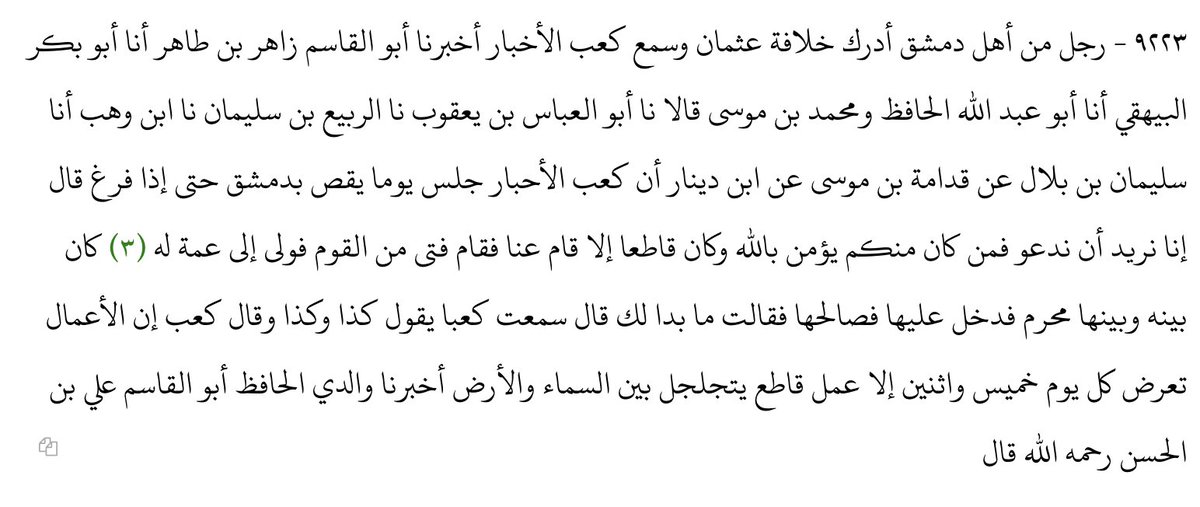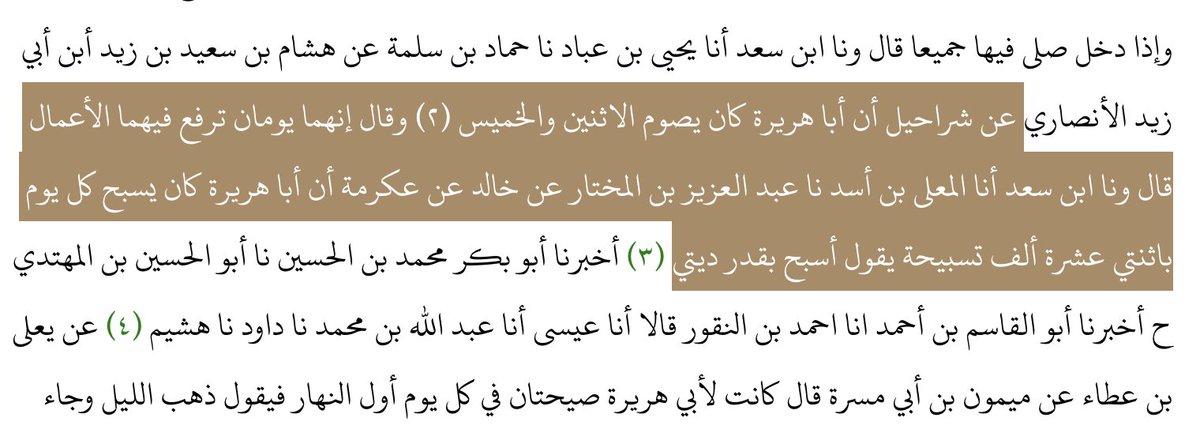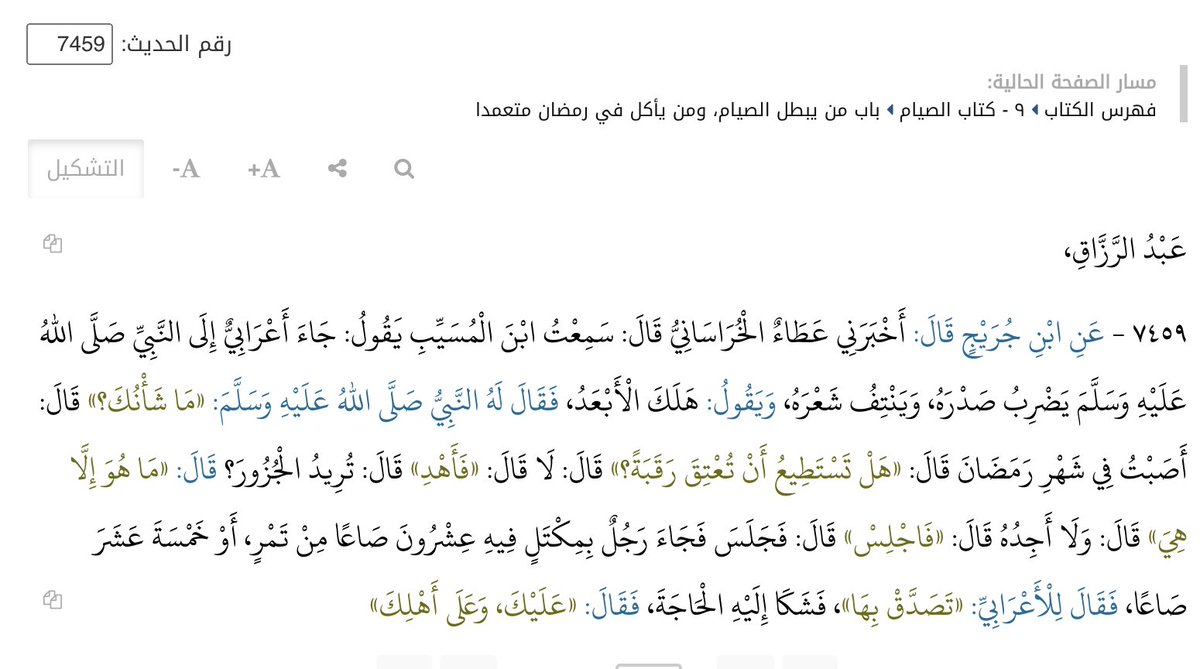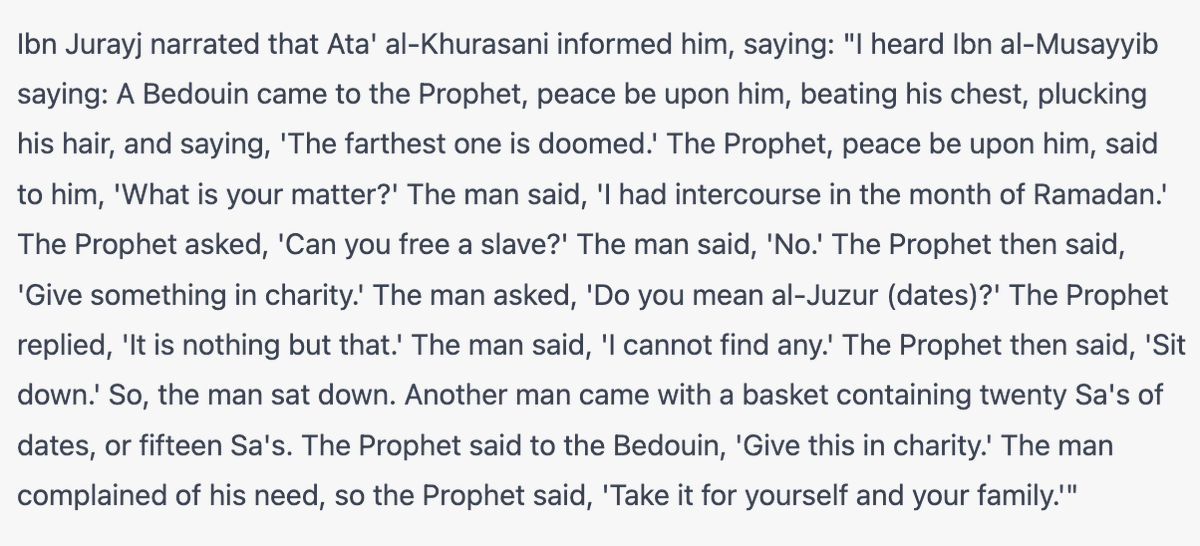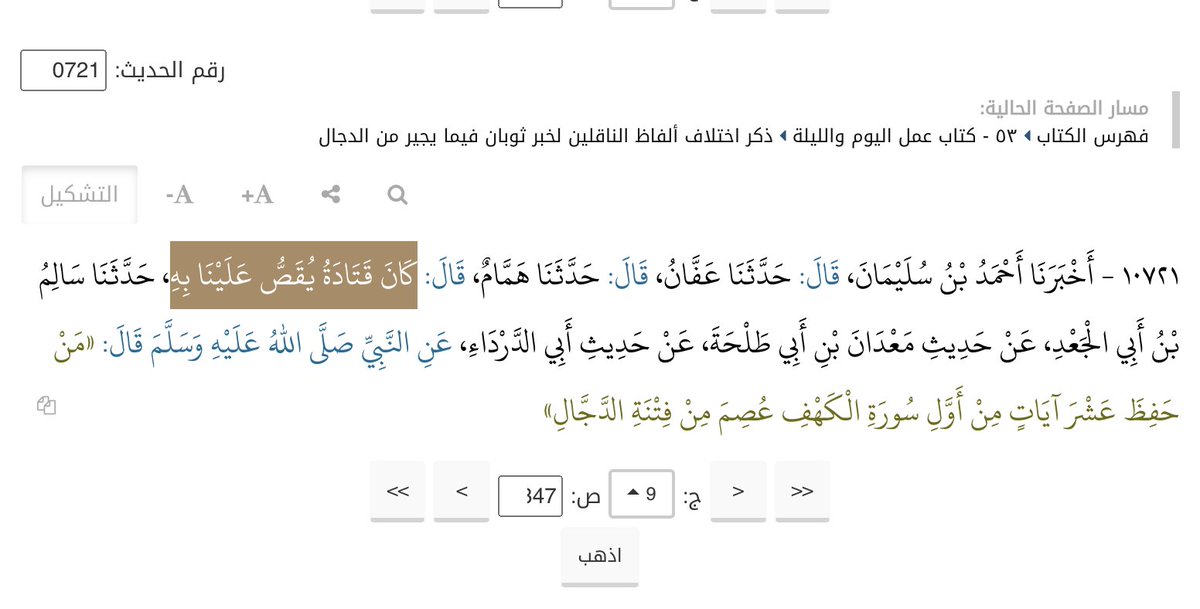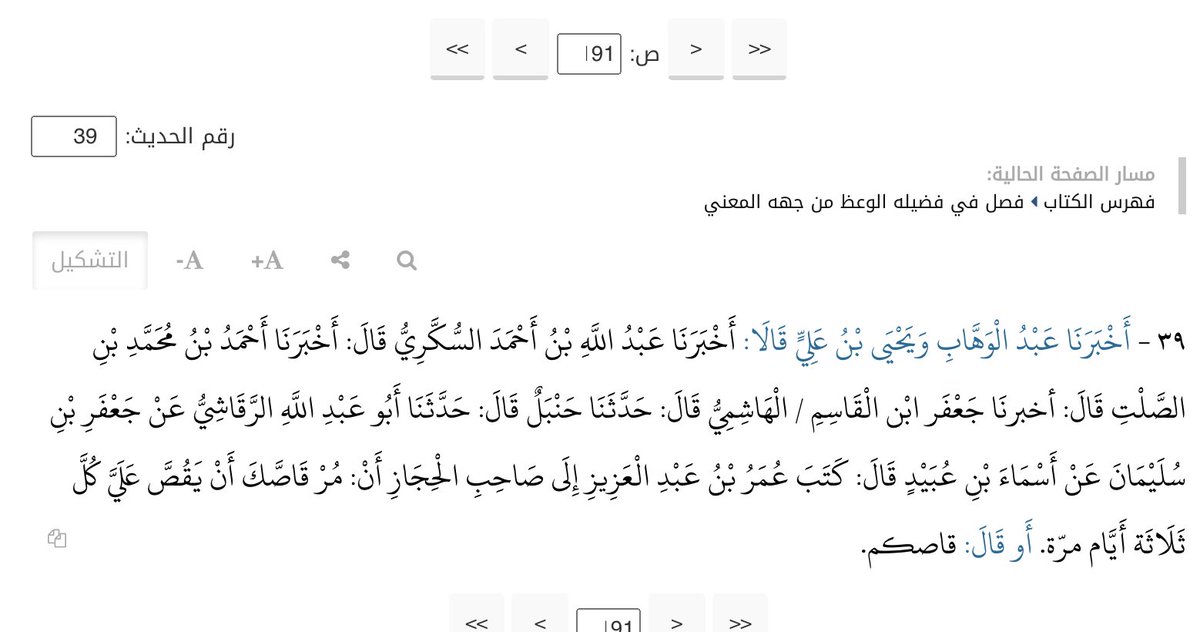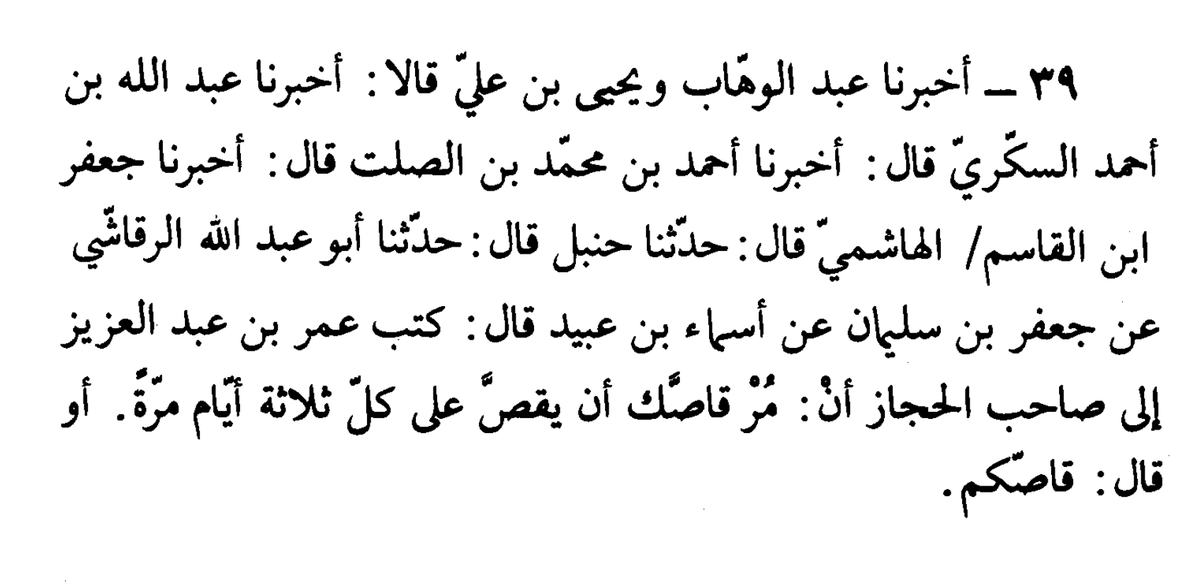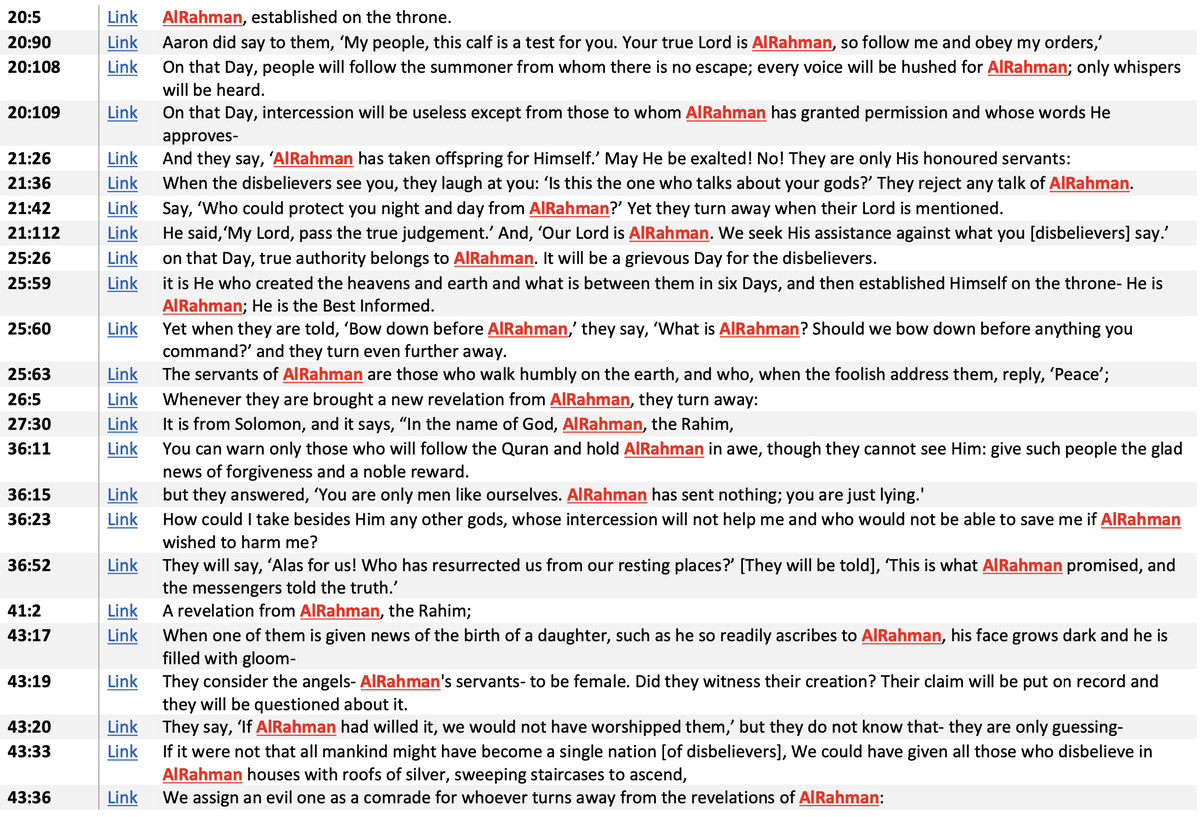Let's say we have a hadith that goes back to a sahabi, and he mass transmitted it to its students.
In the hadith, he says "The Prophet said x, y, z" or he says "On the authority of the Prophet: x, y, z".
Does it mean he ABSOLUTELY heard it with his own ears?
Not at all.
In the hadith, he says "The Prophet said x, y, z" or he says "On the authority of the Prophet: x, y, z".
Does it mean he ABSOLUTELY heard it with his own ears?
Not at all.
We assume that when a sahabi narrates something from the Prophet, it means he was there, and he was a direct witness.
This was not always the case, far from it!
Here are 6 examples showing sahabas MIGHT narrate hadiths they didn't hear/narrate things they didn't SEE.
This was not always the case, far from it!
Here are 6 examples showing sahabas MIGHT narrate hadiths they didn't hear/narrate things they didn't SEE.
1) When young sahabas narrate things from a period they weren't even born.
Ex: Ibn Abbas describing things from the Meccan period. He wasn't even born. Impossible for him to witness it directly.
So he has a source, but who is his source? "Another sahabi, so it's fine anyway".
Ex: Ibn Abbas describing things from the Meccan period. He wasn't even born. Impossible for him to witness it directly.
So he has a source, but who is his source? "Another sahabi, so it's fine anyway".
Regardless of if they were right or wrong, we have two pillars of Sunnism that refute Ibn Abbas and openly attack his source (a poet): Urwa and Yahya b. Said al Ansari.
Ex: for the Mekkan period, they disagreed with him:
shamela.ws/book/30741/6
shamela.ws/book/12288/33



Ex: for the Mekkan period, they disagreed with him:
shamela.ws/book/30741/6
shamela.ws/book/12288/33

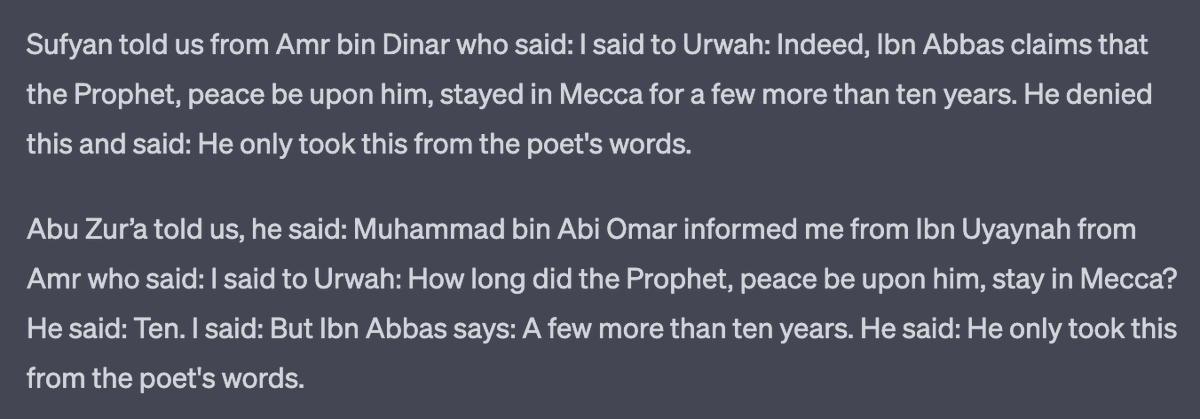
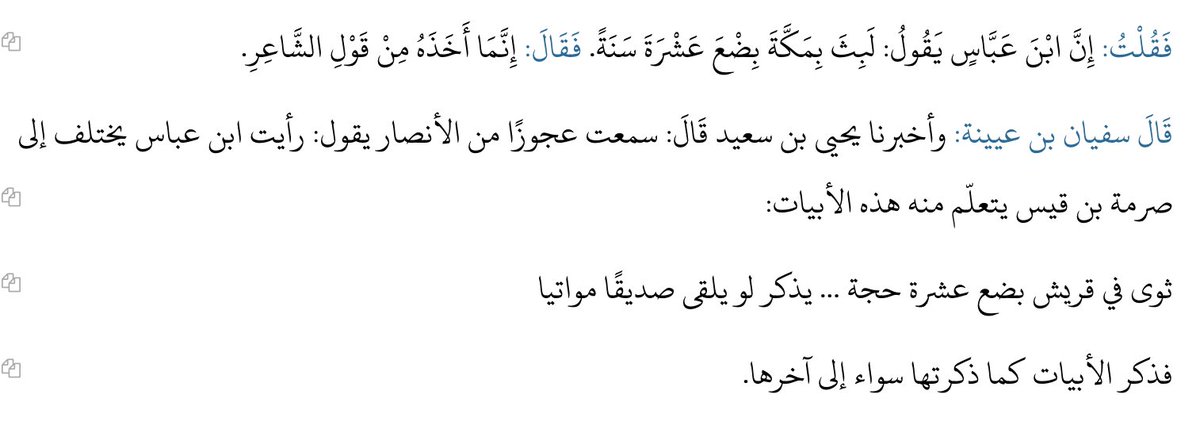
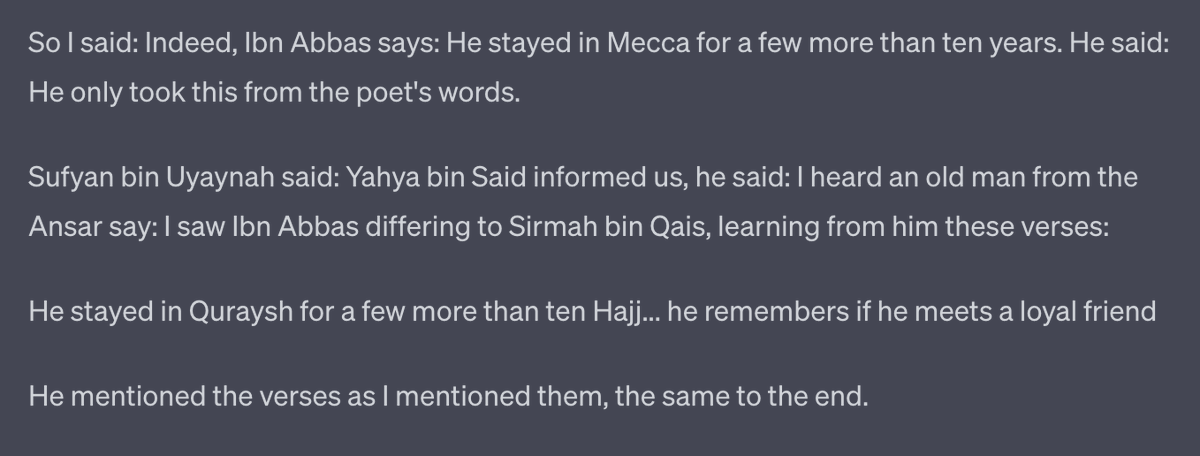
2) The own admission from young sahabas that they didn't hear everything with their ears.
When asked, Al barra b. 'Azib and Anas b. Malik dodge the question and basically say "I wasn't a direct witness but you shouldn't doubt what I report anyway".
Anas even becomes angry.



When asked, Al barra b. 'Azib and Anas b. Malik dodge the question and basically say "I wasn't a direct witness but you shouldn't doubt what I report anyway".
Anas even becomes angry.


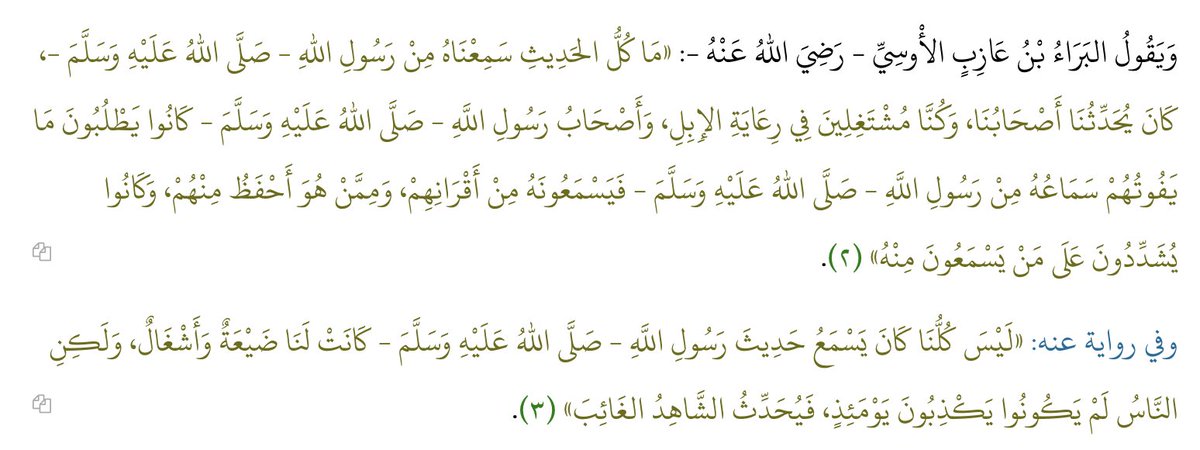
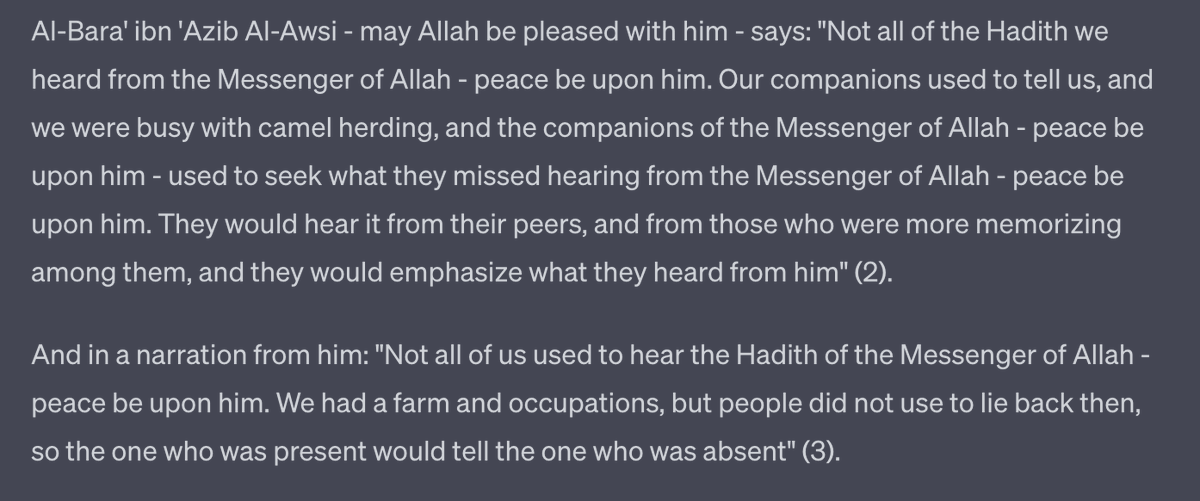
Hear me out: the topic is not their 'adalah. I'm just showing that they DIDN'T witness everything, according to them. It's crucial in the methodology of a historian/investigator.
Sources for the 2 above reports:
shamela.ws/book/96178/67#…
shamela.ws/book/2266/7079
Sources for the 2 above reports:
shamela.ws/book/96178/67#…
shamela.ws/book/2266/7079
3) Abu Hurayra giving a fatwa, and insisting on saying "The Prophet said", then finally admitting he didn't hear it from the Prophet.
islamweb.net/ar/fatwa/23406…

islamweb.net/ar/fatwa/23406…
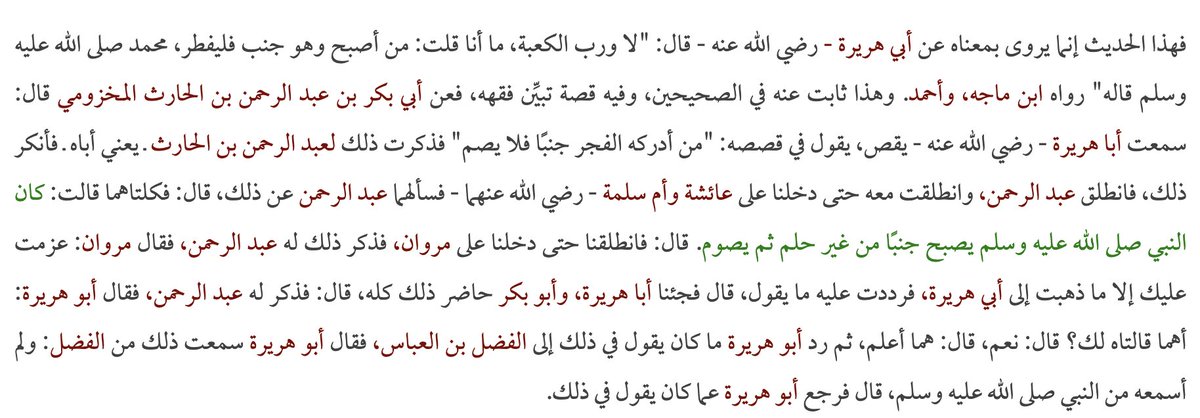
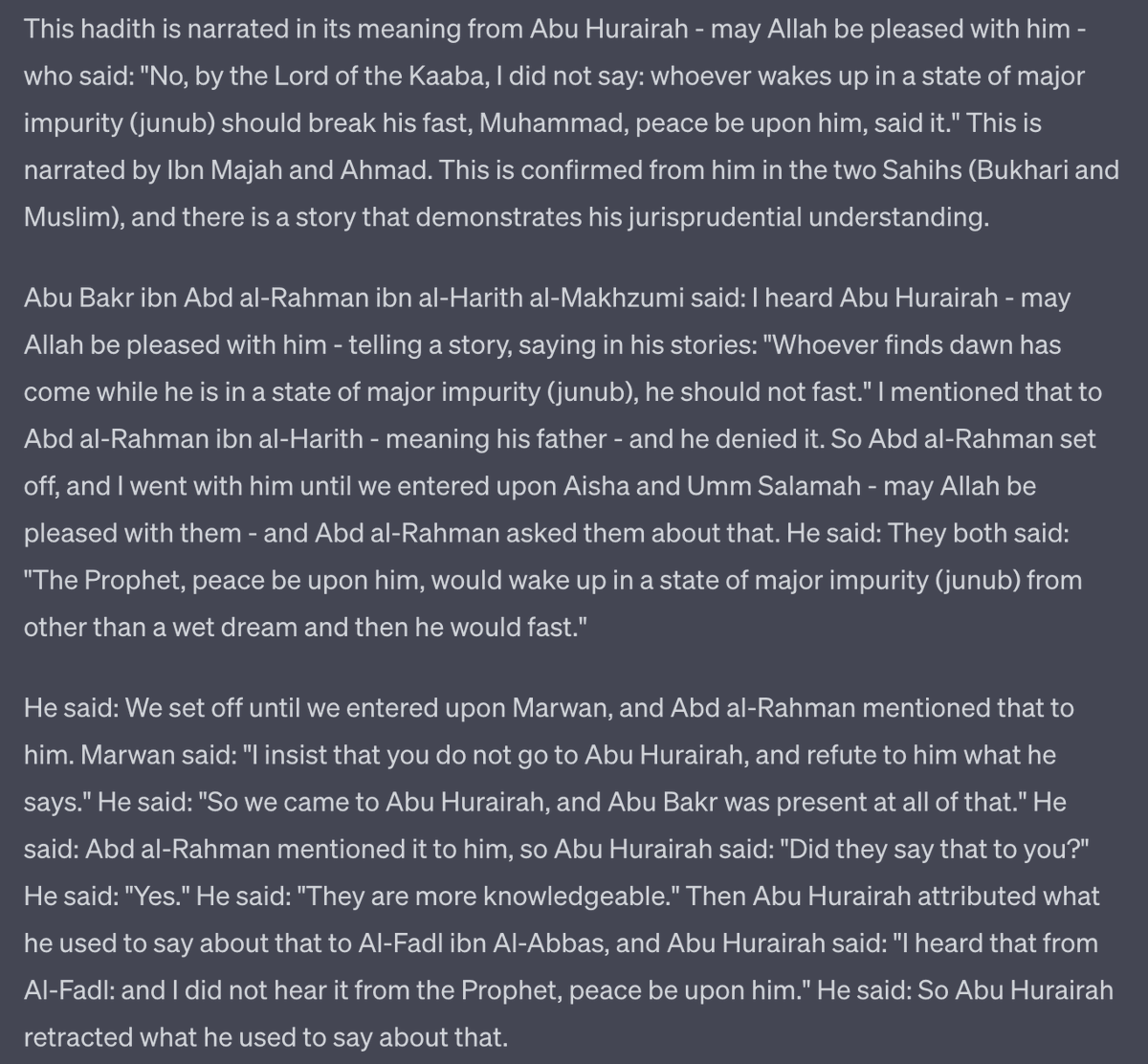
4) Abu Hurayra narrating a hadith, then when asked if this is from the Prophet, admitting "No this is from [the bag of] Abu Hurayra". Tradi science of hadith solved it calling it "hadih mudraj", when the narrator interpolates his own words with a hadith.
shamela.ws/book/1681/7976

shamela.ws/book/1681/7976
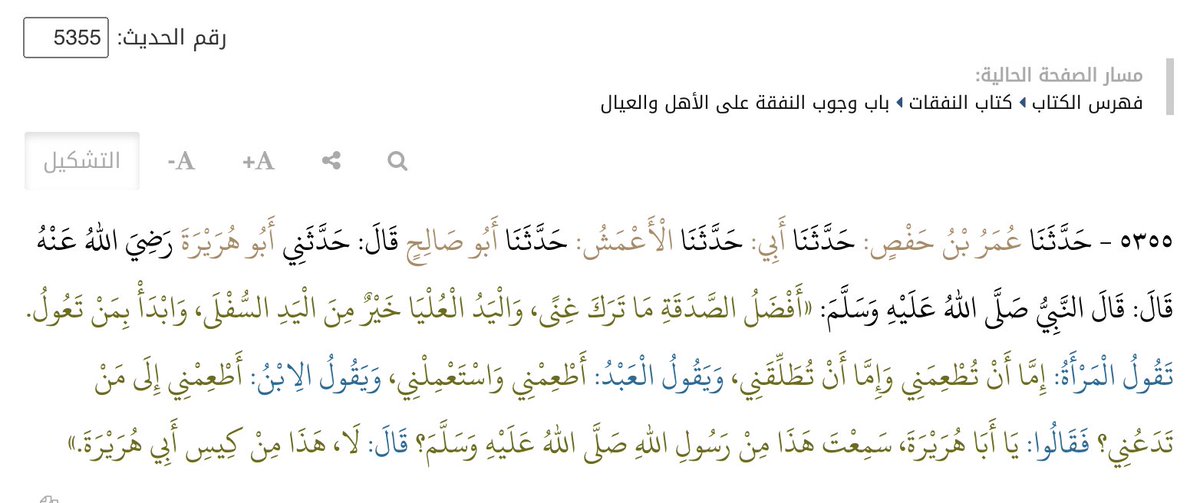
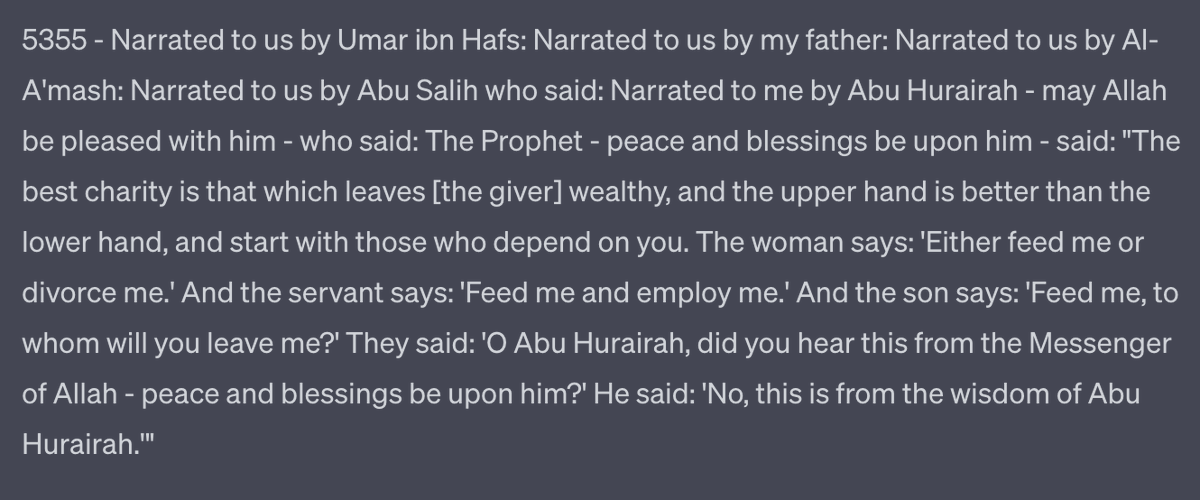
Hadith science already answered the previous case: there is a true hadith somewhere else (the beginning of the hadith) then Abu Hurayra adds his own words within the hadith.
2 things:
1) Does "this is from the bag of Abu Hurayra" relates only to the end of the hadith or the whole?
2) What if we didn't have the conversation and the person asking if it was really from the Prophet? It would have become a full hadith.
1) Does "this is from the bag of Abu Hurayra" relates only to the end of the hadith or the whole?
2) What if we didn't have the conversation and the person asking if it was really from the Prophet? It would have become a full hadith.
Maybe this is why people of Kufa did not accept all hadiths from Abu Hurayra, because of this kind of disturbance.
Several centuries later Ibn Asakir tries to refute Ibrahim al Nakha'i.
Shu'ba even said that Ab. Hur was doing tadlis (!)
shamela.ws/book/4445/6554


Several centuries later Ibn Asakir tries to refute Ibrahim al Nakha'i.
Shu'ba even said that Ab. Hur was doing tadlis (!)
shamela.ws/book/4445/6554


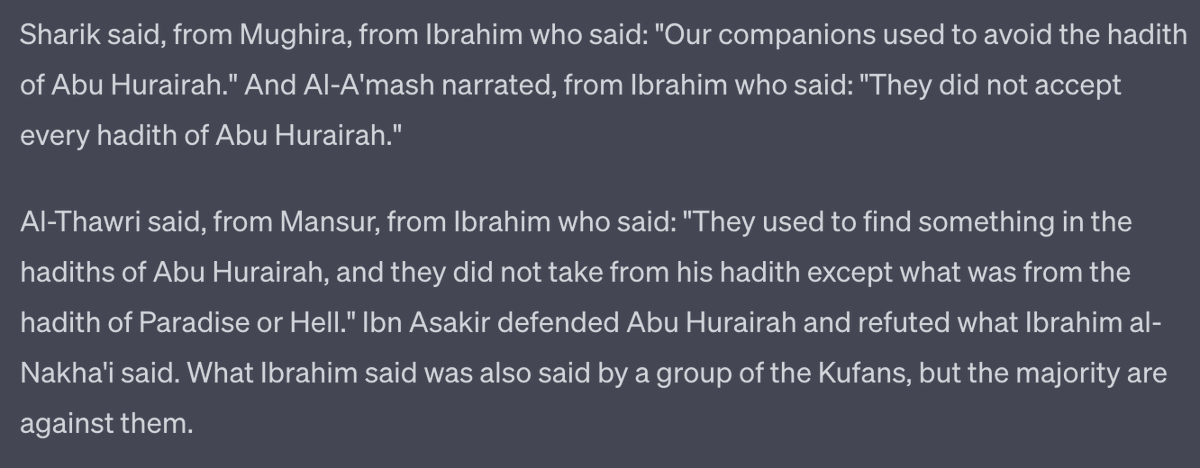
5) The case of Rafi' b. Khudayyej
A sahabi, Rafi', hears one bit of a sentence then extrapolates and extracts a juridical rule from it.
In this case we have a lifesaver which is another sahabi who gives another point of view of the same event.
islamic-awareness.org/hadith/ulum/as…
A sahabi, Rafi', hears one bit of a sentence then extrapolates and extracts a juridical rule from it.
In this case we have a lifesaver which is another sahabi who gives another point of view of the same event.
islamic-awareness.org/hadith/ulum/as…
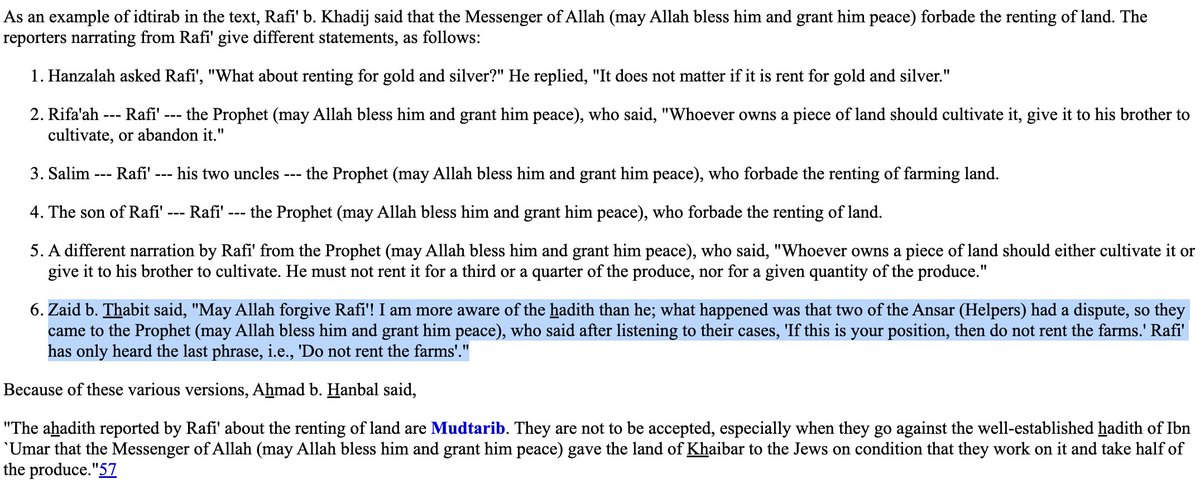
6) "We got commanded" ahadiths: when you read such a hadith from a sahabi that says "we got commanded to do x and y" you automatically assume it comes from the Prophet ﷺ?
In this example, Anas explains that Umar b. al-Khattab was the one who commanded people to do things.

In this example, Anas explains that Umar b. al-Khattab was the one who commanded people to do things.
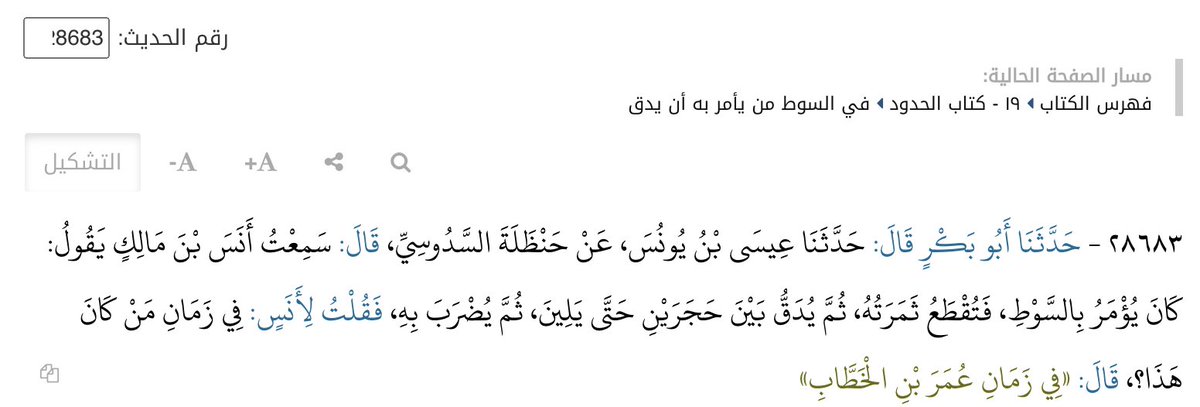

Source: shamela.ws/book/9944/32482
Conclusion: when a sahabi narrates something, it doesn't mean he was a direct witness, far from it.
Does that change anything? If you're a sunni, no, not necessarily because you trust scholars and multi-centuries science of hadith to detect and correctly handle these cases.
Does that change anything? If you're a sunni, no, not necessarily because you trust scholars and multi-centuries science of hadith to detect and correctly handle these cases.
But if you are at least a little bit skeptic on hadiths, it just confirms your gut feeling. And now you understand why, for most of Sunni sects, hadith only implied dhan (presumption).
And you know what? We only scratched the surface.
And you know what? We only scratched the surface.
• • •
Missing some Tweet in this thread? You can try to
force a refresh

 Read on Twitter
Read on Twitter



